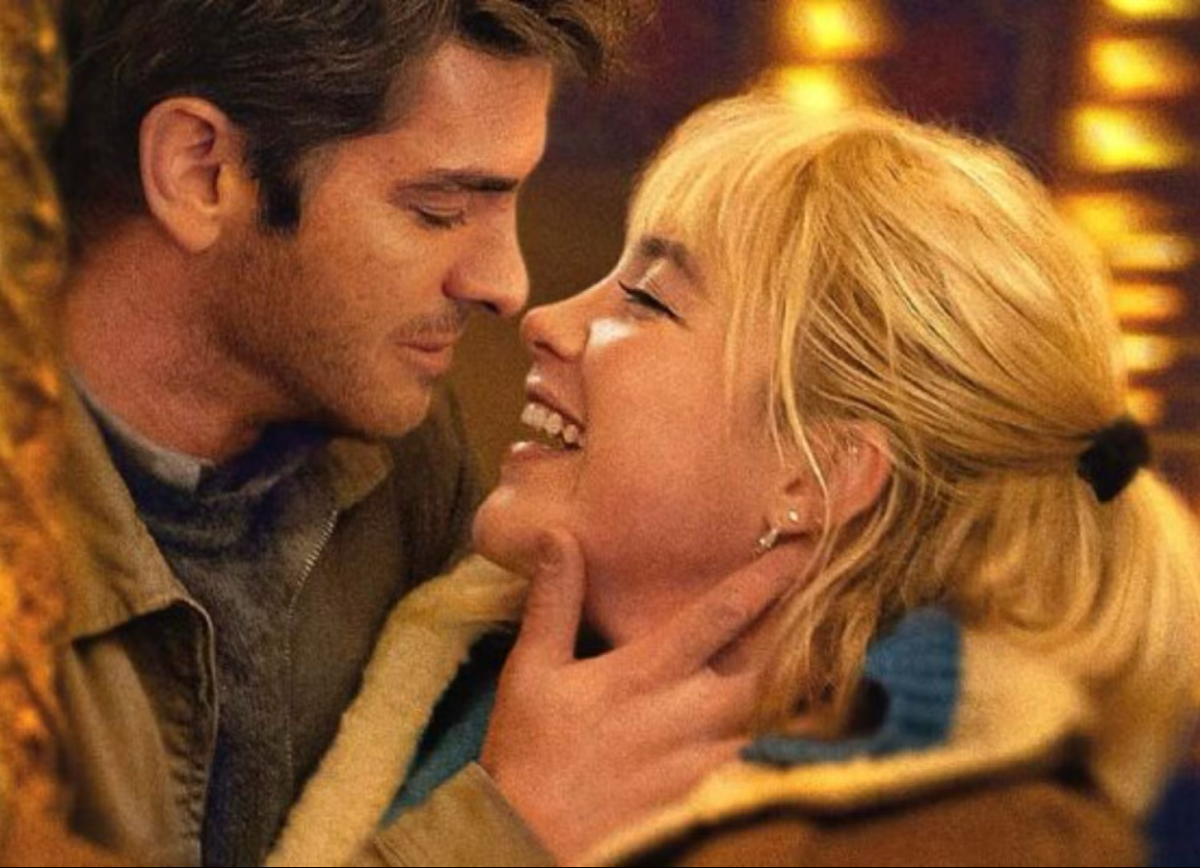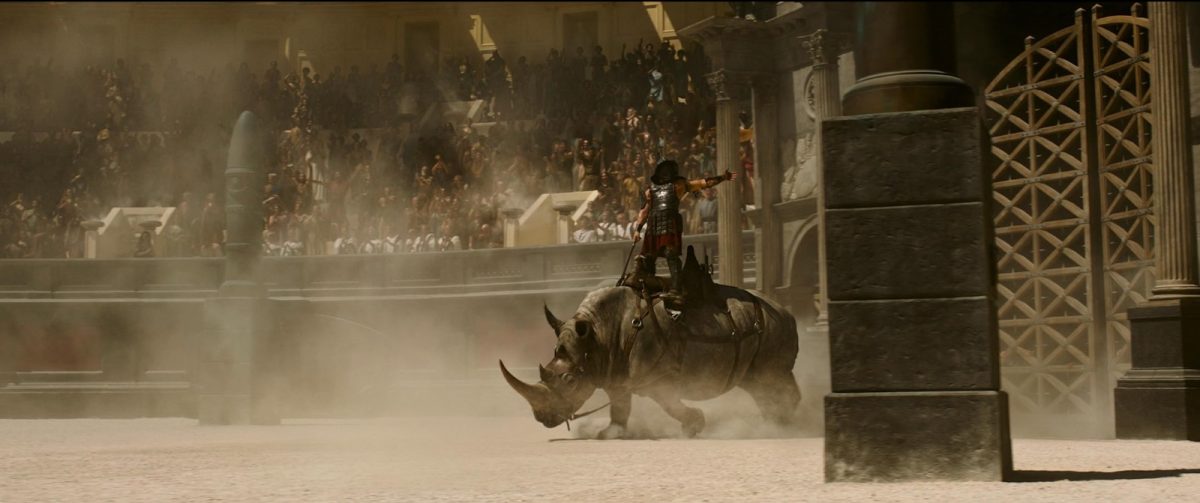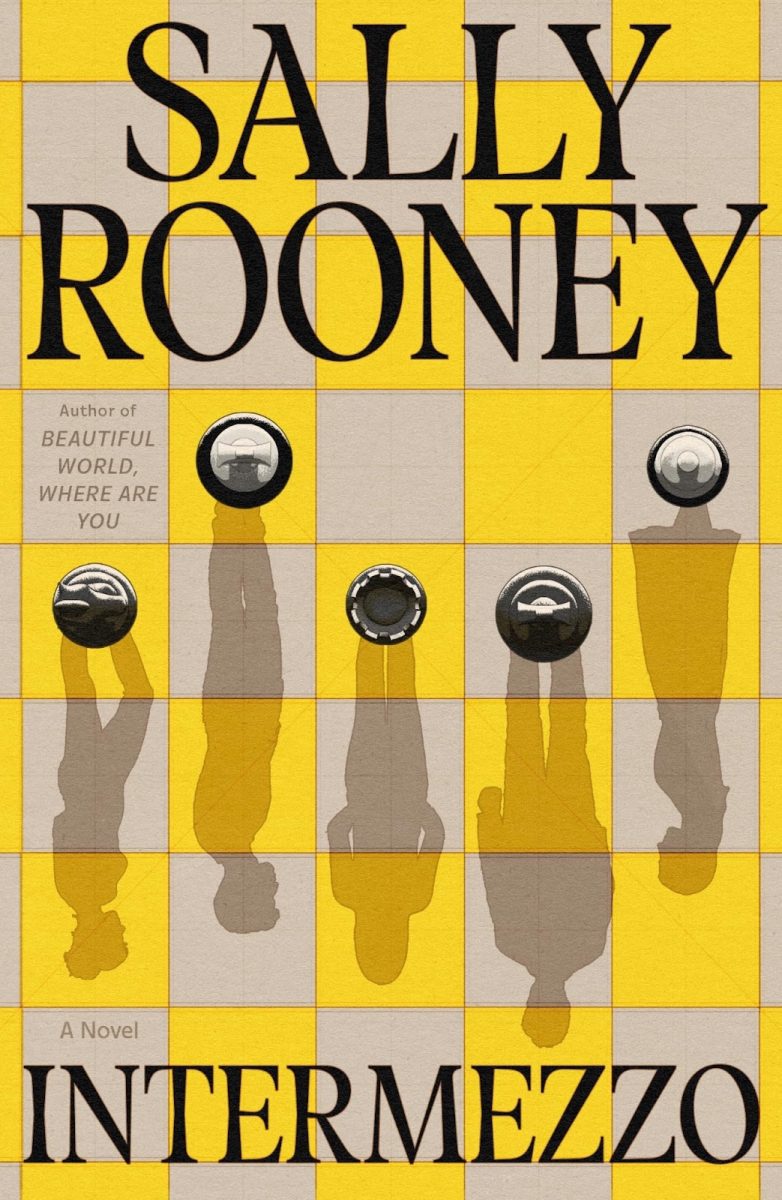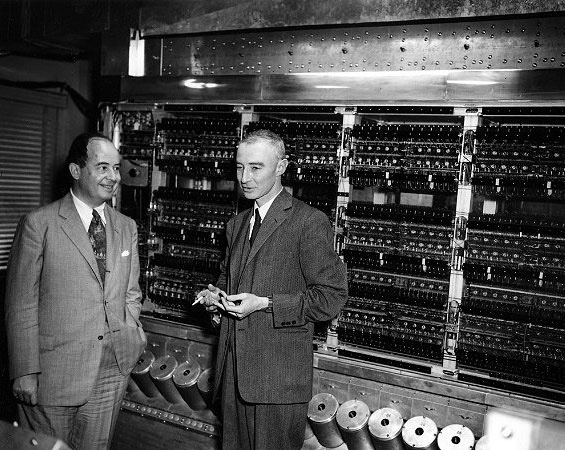To appropriately contextualize my reaction to this movie, let me tell you how I came to see this movie in the first place. I am hardly what you would call a seasoned movie critic or a “film bro,” but I am a rom-com fiend.
I have always watched these types of fun, light-hearted movies with my mom, sister and friends, so it has become a beloved genre. The addiction has gotten to the point where I have created a monstrosity of a Google spreadsheet of every rom-com I’ve ever seen and rated them across different scales including “feel good,” “rom-com, extra com,” “top tier” and many more categories. When I heard that there was a rom-com coming out soon with Andrew Garfield and Florence Pugh, my spreadsheet and I were over the moon.
The first chance I got — which happened to be over fall break — I persuaded my friends to see this allegedly incredible movie with me. This persuasion relied on two things: the Rotten Tomatoes score and its genre. With a solidly fresh score on rotten tomatoes (78%) and the promise of a romance/comedy, we snatched up tickets and made our way to the theater, ready to laugh, smile and generally be merry.
I have never cried so uncontrollably because of a film. I came out of that theater a sniveling, snotty mess, mumbling about the cinematography. My friends and I rode home in shell-shocked silence. To say the least, my expectations for a feel-good, one dimensional rom-com were not exactly met. No matter what the advertisements might say, this movie is not a rom-com.
That said, I adored this movie. Garfield and Pugh take us on a scenic and touching tour of a realistically flawed but ultimately gorgeous relationship. Unlike your typical rom-com, this movie does not hinge on archetypal characters or slapstick comedy. Instead, it defines itself through authentic portrayals of human relationships along with a few realistic laugh-out-loud moments.
The timeline of this couple’s story is told brazenly out of order, jumping between milestones in their relationship. Skipping through their time together displays the complexity and meshing of memories as they are often remembered in our minds. However, sometimes these jumps are not distinct enough, and it may take the viewer a second to find his or her footing. Distinct markers, like drastic appearance changes for the main characters or different color filters, might have made these jumps clearer.
While Garfield and Pugh have easy chemistry together, it’s not exactly the “sparks flying off the screen” that you might expect from a typical rom-com pairing. This subtler depiction of love feels more genuine. However, there is something left to be desired in their interactions, and oftentimes their relationship feels more like a deep friendship than a romance.
What makes this film particularly compelling is the complex depiction of Pugh’s character. Early in their relationship, she firmly expresses her desire not to have children, leading to a conflict between Garfield’s character and her own. However, when faced with a devastating diagnosis, she reconsiders, perhaps reflecting the way the realization of mortality can change a person. On the other hand, it remains ambiguous whether her change of heart is a sacrifice for her partner or a rebellion against her illness’s power over her life.
Her character also questions the definition of legacy, especially in the context of motherhood. Determined to be remembered as more than just a mother and a wife, she channels her energy into personal achievements, which brilliantly sidesteps the “tragic, weak patient” trope and instead offers a portrait of a passionate, angry woman fighting against the injustice of life. Eventually, she comes to the realization that the most important part of our legacy is the love we leave behind.
Following the movie, I was painfully reminded of the quote, “What is grief, if not love persevering?” This film doesn’t just explore love, but also what happens in the wake of love that is lost. Where does this love go? This film shows that love stays with us in the things we do and say and how we see the world. We become a mosaic of everyone we have ever loved, adopting their quirks, traditions and loves.
While it wasn’t your typical rom-com, that was what made it beautiful in my opinion. This movie turned your typical surface-level love story into a discussion about mortality, legacy, and the hardships of love. I might even need to make a whole new spreadsheet for movies that hit this hard.














